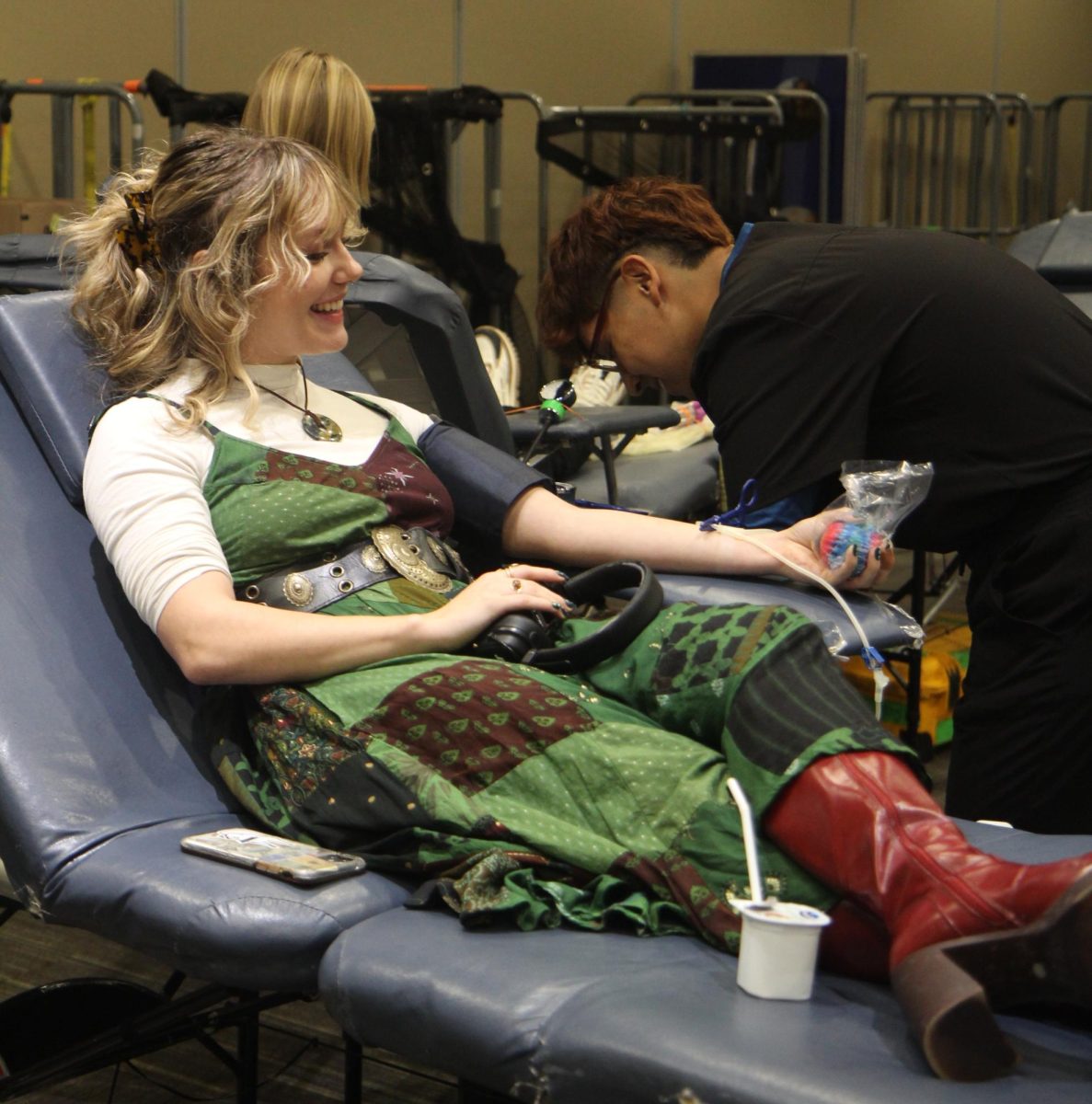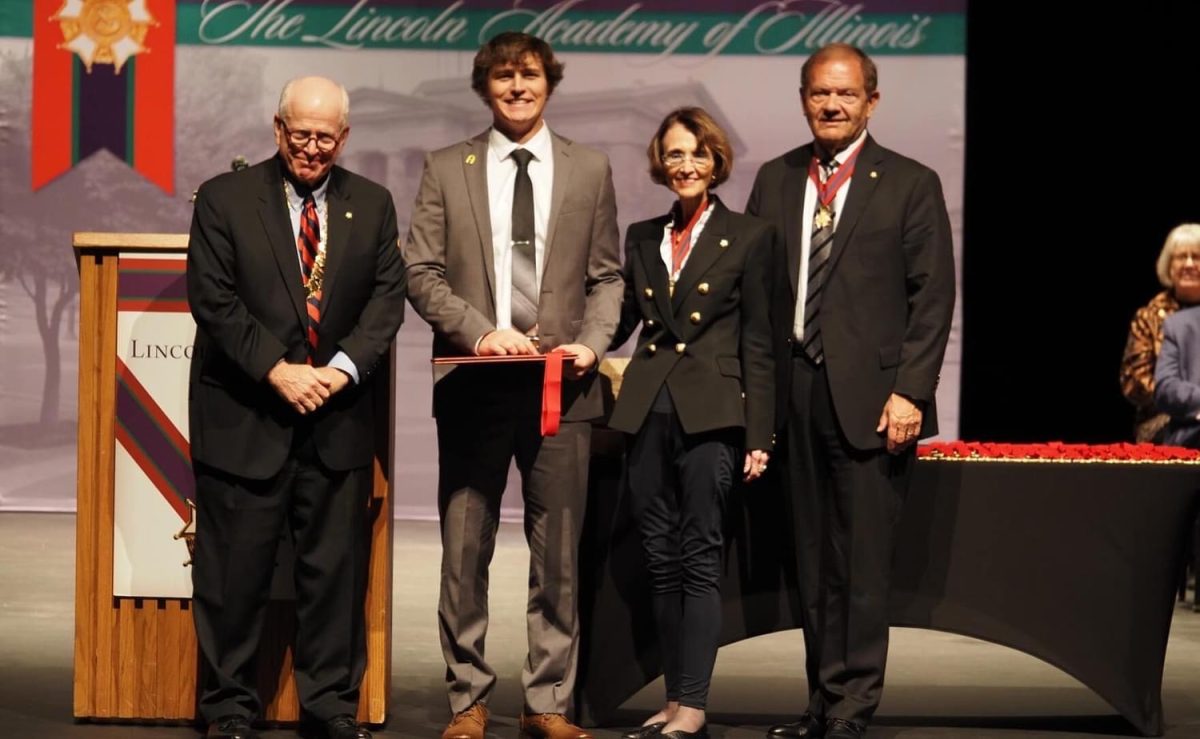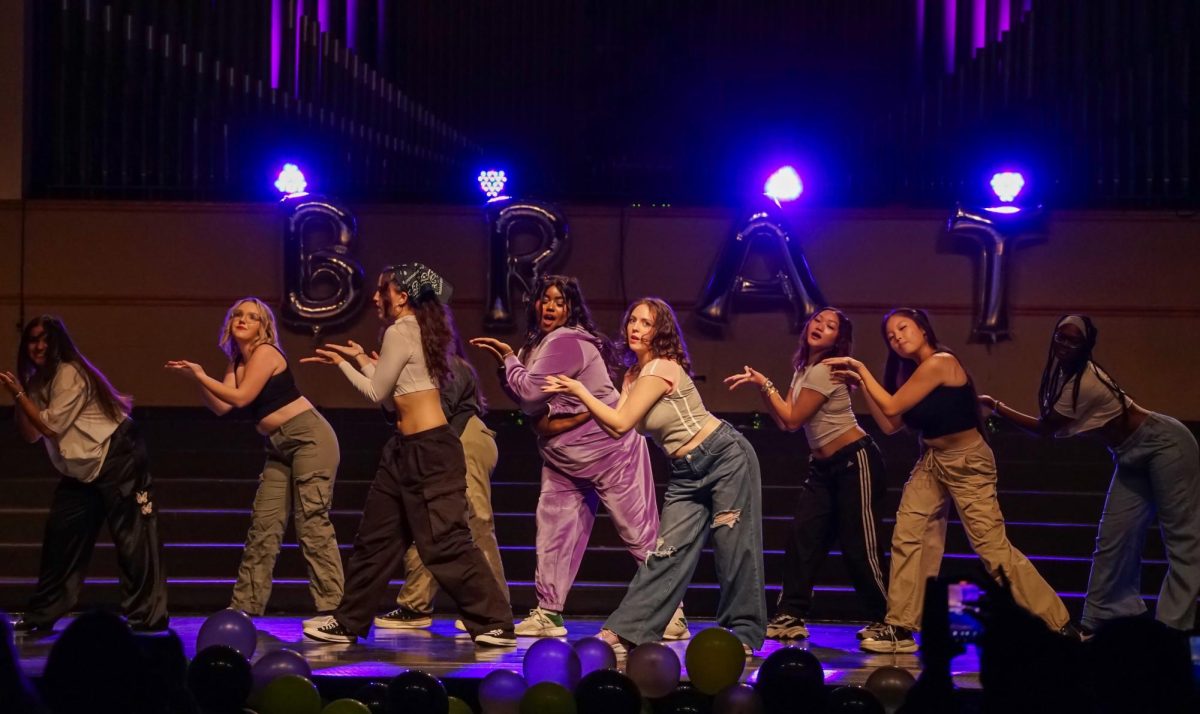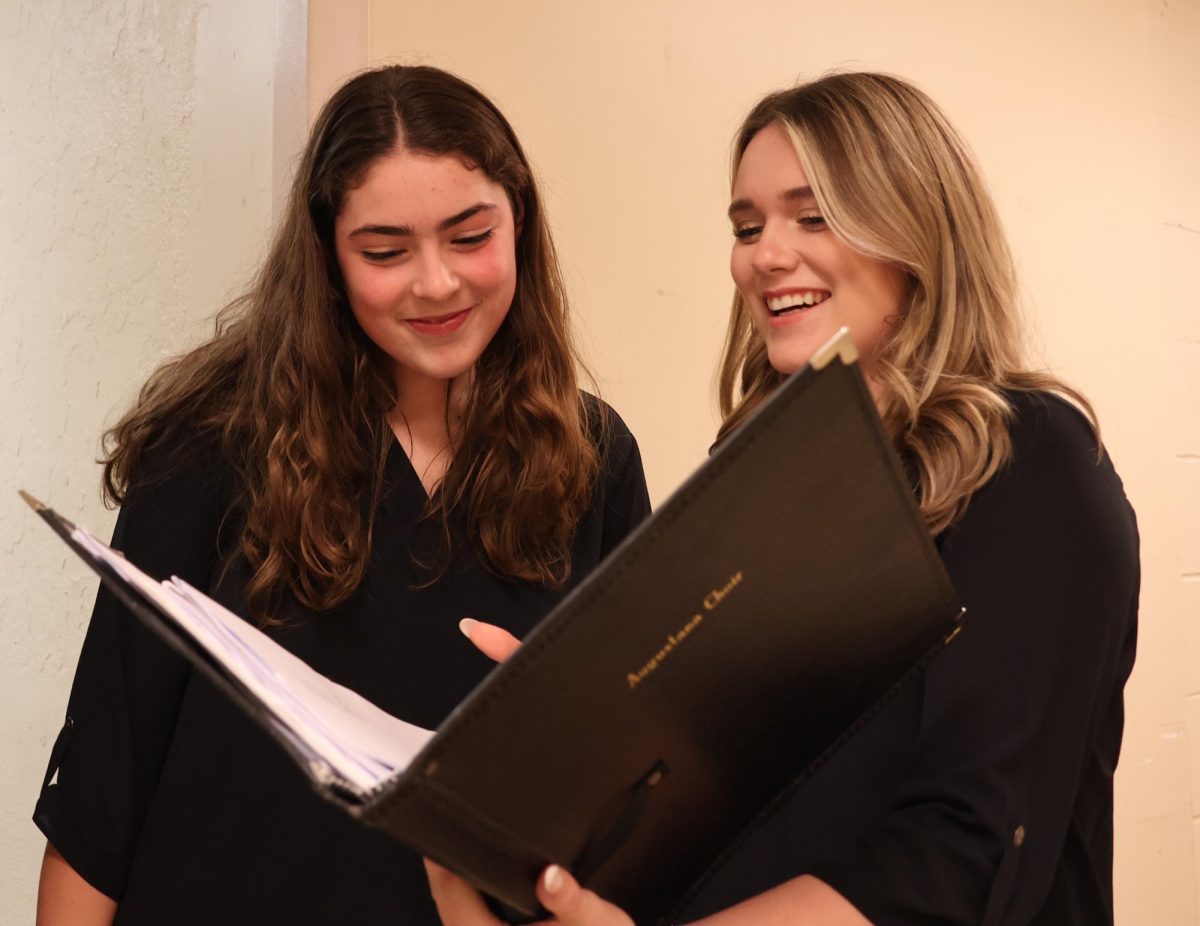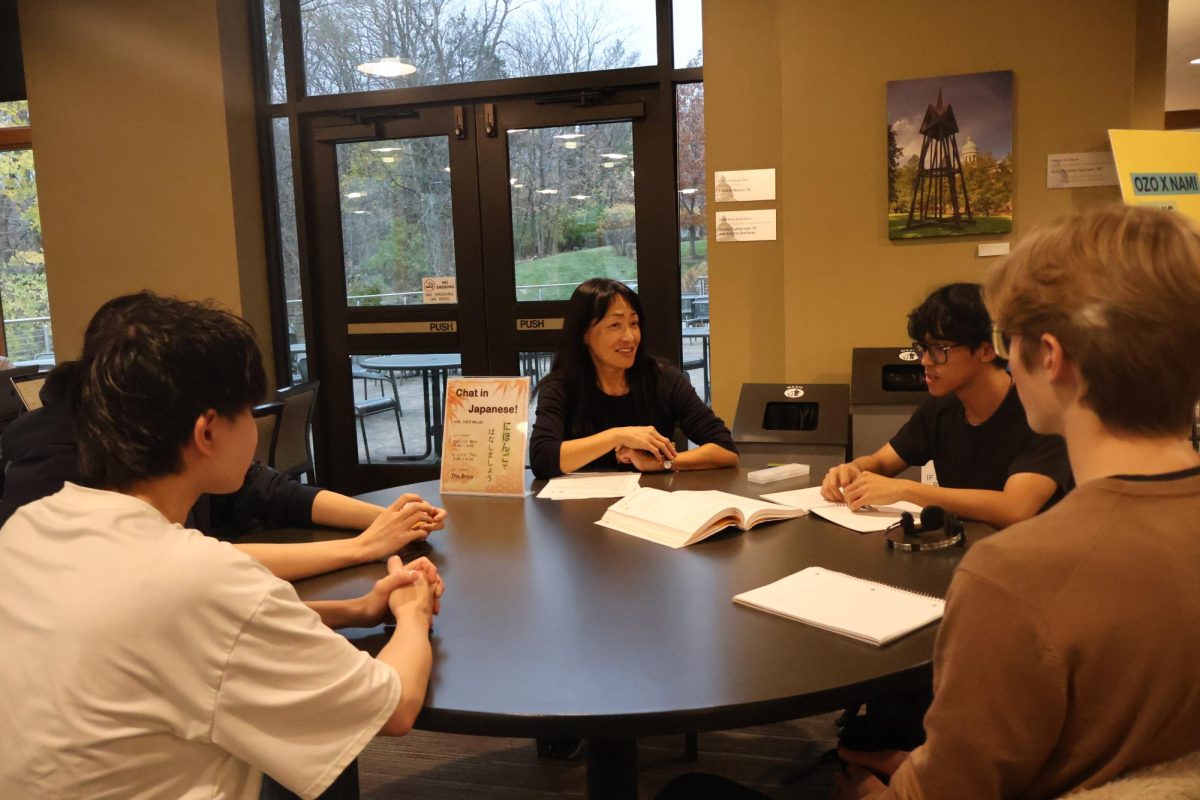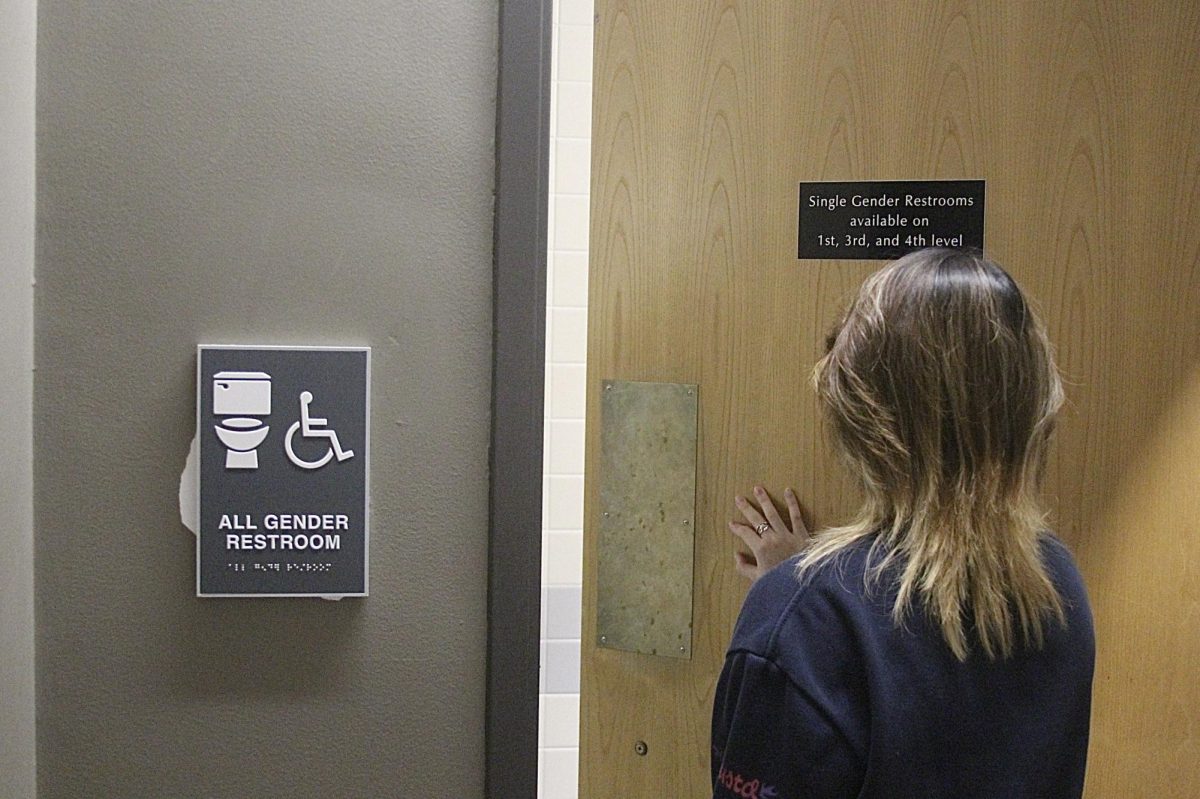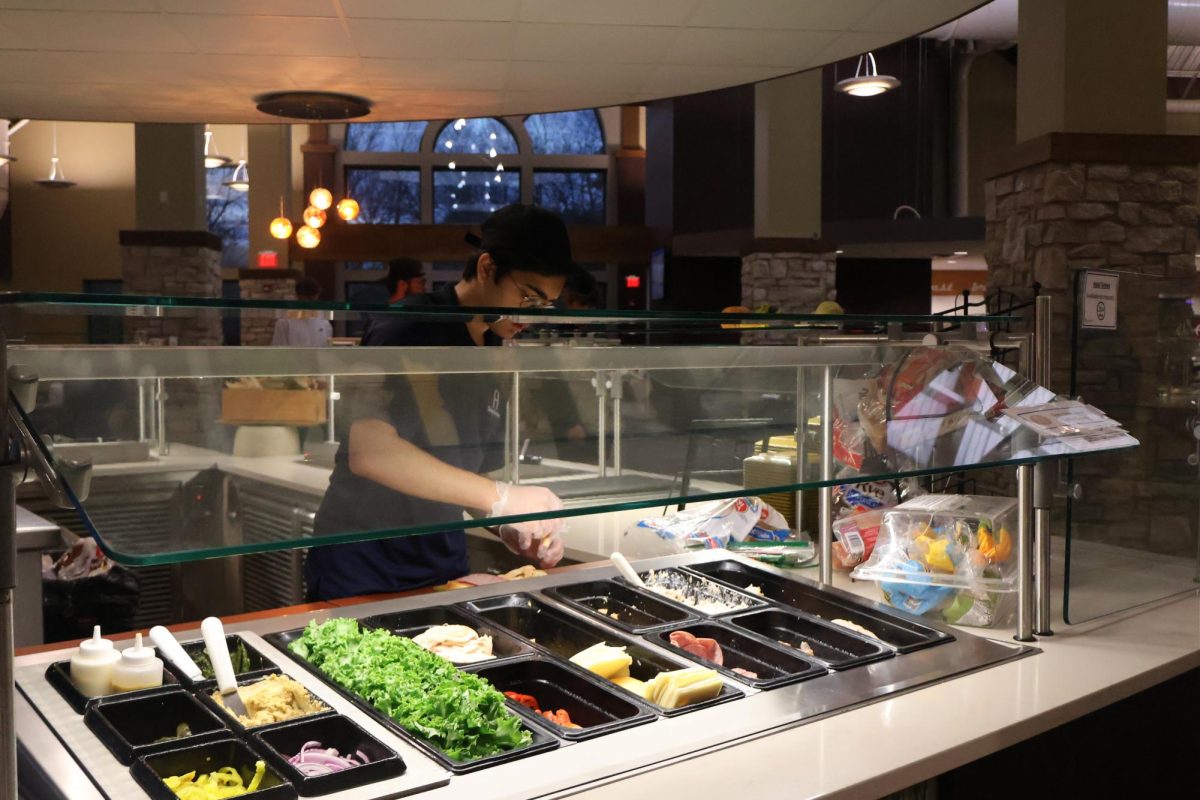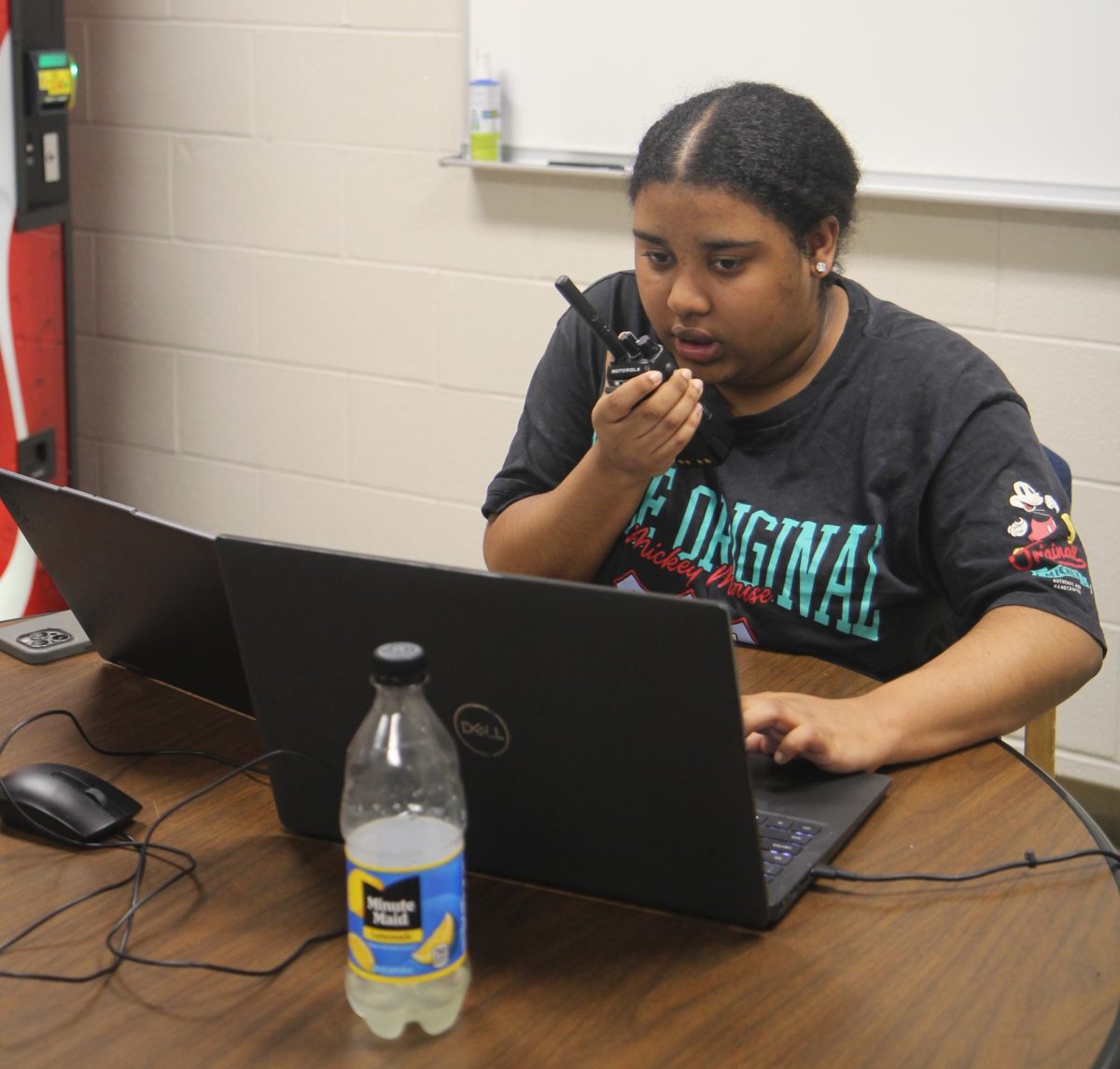Three thousand pounds of Greek meat, baklava and wine were waiting for visitors at the 13th annual Big Fat Greek Festival at St. George Greek Orthodox Church last weekend. Among the food and festivities, was the event’s first formal, intellectual discussion led by Augustana alumna, Irene Mekus.
A graduate of the 2017 class, Mekus majored in geography and public health. As a part of her honors capstone project, she investigated current and past Greek identity in the Quad Cities.
“I chose to research Greek identity in the Quad Cities because I am half Greek and both sets of my great grandparents on my dad’s side of the family immigrated to America from Greece in the early 1900’s. They settled in the Quad Cities and my grandparents and parents have been lifelong members of St. George,” Mekus said.
The festival is named after the 2002 movie “My Big Fat Greek Wedding” and is hosted by the parish. According to Brad Crosson, parish council secretary and co-chair of the festival, the event is a showcase of Greek culture and faith that is shared with the community.
“Originally, it was for supplementing income for the church. It’s also camaraderie for the church. It opens up the church to the community and gives them the opportunity to see what we do. Greek food is a big part of Greek culture,” Mr. Crosson said.
A graduate of the 2017 class, Mekus majored in geography and public health. As a part of her honors capstone project, she investigated current and past Greek identity in the Quad Cities.
“I chose to research Greek identity in the Quad Cities because I am half Greek and both sets of my great grandparents on my dad’s side of the family immigrated to America from Greece in the early 1900’s. They settled in the Quad Cities and my grandparents and parents have been lifelong members of St. George,” Mekus said.
The festival is named after the 2002 movie “My Big Fat Greek Wedding” and is hosted by the parish. According to Brad Crosson, parish council secretary and co-chair of the festival, the event is a showcase of Greek culture and faith that is shared with the community.
“Originally, it was for supplementing income for the church. It’s also camaraderie for the church. It opens up the church to the community and gives them the opportunity to see what we do. Greek food is a big part of Greek culture,” Mr. Crosson said.
Serving from a drive-through window and a buffet, volunteers go through about 3,000 pounds of meat in two days, which they carve themselves and store in a refrigerated, 53-foot truck. Depending on the weather, the festival feeds 6,000 to 8,000 people in one weekend.
“We don’t have any leftovers. Last year, there was one pan of souvlaki and one box of pita bread after two days,” said cook Jim Winters. “Greeks are pretty much known for the food. … We make sure you don’t go away hungry.”
Though the food is the main attraction, parishioners from St. George say that the heart of the festival is sharing the Greek culture and Greek Orthodox faith with the community.
“I see a need for this festival partly so that people can come see what’s in the church. I’ve actually had some people convert because they came to the festival, liked what they saw, came to church, and learned who we are,” the Rev. Michael Constantinides, priest of St. George, said.
According to Mekus, this centralization of Greek culture around the church is something that kept the community so tight in its early stages. She notes that though Swedish and Mexican immigration in the Quad Cities is thoroughly researched, Greek immigration is not as much of a focus.
“For early Greeks, the church was integral to the social life as well as essential to preserving their language and heritage. They faced harsh discrimination in school, in jobs they were passed over for having an ‘unpronounceable’ Greek name and even Quad City housing policy that wanted to segregate Greeks. When they arrived and were not considered “white”, but today, no would question that they would be considered anything other than Caucasian. This really makes you question how society integrates immigrants and is a relevant question to ponder today,” Mekus said.
“We don’t have any leftovers. Last year, there was one pan of souvlaki and one box of pita bread after two days,” said cook Jim Winters. “Greeks are pretty much known for the food. … We make sure you don’t go away hungry.”
Though the food is the main attraction, parishioners from St. George say that the heart of the festival is sharing the Greek culture and Greek Orthodox faith with the community.
“I see a need for this festival partly so that people can come see what’s in the church. I’ve actually had some people convert because they came to the festival, liked what they saw, came to church, and learned who we are,” the Rev. Michael Constantinides, priest of St. George, said.
According to Mekus, this centralization of Greek culture around the church is something that kept the community so tight in its early stages. She notes that though Swedish and Mexican immigration in the Quad Cities is thoroughly researched, Greek immigration is not as much of a focus.
“For early Greeks, the church was integral to the social life as well as essential to preserving their language and heritage. They faced harsh discrimination in school, in jobs they were passed over for having an ‘unpronounceable’ Greek name and even Quad City housing policy that wanted to segregate Greeks. When they arrived and were not considered “white”, but today, no would question that they would be considered anything other than Caucasian. This really makes you question how society integrates immigrants and is a relevant question to ponder today,” Mekus said.
The parish, which was founded in 1910, has been a cornerstone for not only the Greek community, but also people of different backgrounds as a pan-Orthodox church. Mary Rankin, parish council president, said she sees the diversity and spirit of the community present in the congregation of the church.
“I’m not Greek. I’m a convert. I lived in Russia, Romania and the island of Crete. That’s where I lived across from the Army chaplain in Greece, so I converted. Almost everybody here is second or third generation. It’s very pan-Orthodox. We have Russians, Romanians, Syrians, Serbians, Ukrainians, Palestinians — we even have some from Eritrea. We do the Lord’s Prayer in five different languages,” Ms. Rankin said.
Over the years, the size of the congregation has decreased.
“We’re getting smaller. Children moved away from families that otherwise have been here for years. They go off to college or go somewhere else for employment. It used to be about 200 families, but I think it’s down to 150 families now,” Mr. Crosson said.
In her interviews and research, Mekus found that this connection with Greek Orthodox faith allowed the Greek community to branch out and create other relationships with the Quad Cities area. Though the size and body of the congregation may be changing at St. George’s, Mekus asserts that Greek identity is still one that is filled with energy.
“I’m not Greek. I’m a convert. I lived in Russia, Romania and the island of Crete. That’s where I lived across from the Army chaplain in Greece, so I converted. Almost everybody here is second or third generation. It’s very pan-Orthodox. We have Russians, Romanians, Syrians, Serbians, Ukrainians, Palestinians — we even have some from Eritrea. We do the Lord’s Prayer in five different languages,” Ms. Rankin said.
Over the years, the size of the congregation has decreased.
“We’re getting smaller. Children moved away from families that otherwise have been here for years. They go off to college or go somewhere else for employment. It used to be about 200 families, but I think it’s down to 150 families now,” Mr. Crosson said.
In her interviews and research, Mekus found that this connection with Greek Orthodox faith allowed the Greek community to branch out and create other relationships with the Quad Cities area. Though the size and body of the congregation may be changing at St. George’s, Mekus asserts that Greek identity is still one that is filled with energy.
“These later generations of Greeks identify with their faith and pride in Greek heritage, but also find connections with their own entrepreneurial pursuits, as many opened grocery stores, businesses, restaurants and through their life experiences of being Greek and facing discrimination, they gained great compassion for others,” Mekus said. “Present Greeks see their faith and pride in heritage as their Greek Identity and continue to live with zest and passion!”
